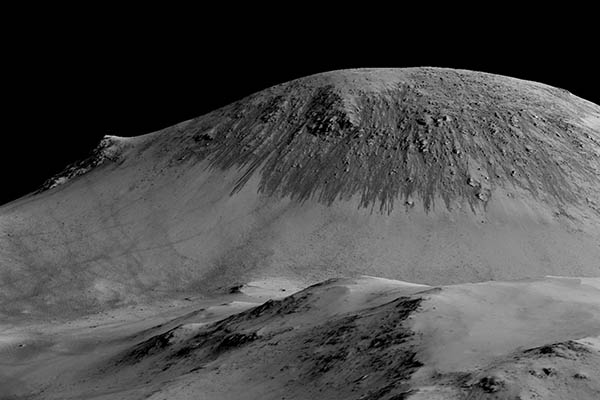-
Tips for becoming a good boxer - November 6, 2020
-
7 expert tips for making your hens night a memorable one - November 6, 2020
-
5 reasons to host your Christmas party on a cruise boat - November 6, 2020
-
What to do when you’re charged with a crime - November 6, 2020
-
Should you get one or multiple dogs? Here’s all you need to know - November 3, 2020
-
A Guide: How to Build Your Very Own Magic Mirror - February 14, 2019
-
Our Top Inspirational Baseball Stars - November 24, 2018
-
Five Tech Tools That Will Help You Turn Your Blog into a Business - November 24, 2018
-
How to Indulge on Vacation without Expanding Your Waist - November 9, 2018
-
5 Strategies for Businesses to Appeal to Today’s Increasingly Mobile-Crazed Customers - November 9, 2018
Moving Water on Mars — NASA Confirms
“Mars is not the dry, arid planet that we thought of in the past”, director of planetary science Jim Green told reporters at NASA’s Washington D.C. headquarters.
Advertisement
Today, scientists from NASA solved one of the major Mars mysteries: does the Red Planet have liquid water on its surface? “What that seems to be telling us is that water plays a key role in the formation mechanism of these features”, said Lujendra Ojha, author of the study on Mars’ water.
“The existence of liquid water gives the possibility that, if there is life on Mars, we have a way to describe how it might survive”, he said.
Flowing, salty water has been discovered on Mars during the planet’s warmest season, NASA confirms.
Said Grunsfeld: “I think all of the scientific discoveries we’re making on the surface of Mars … these observations are giving us a much better view that Mars has resources that are useful to future travels”.
The search for life on Mars by researchers and space enthusiasts may have reached a new breaking point. If scientists can work out where the water is being stored or formed, then these sites would be prime candidates for landing spots on the first manned mission to the planet.
The space agency announced today that after years of investigation, they have determined that water intermittently seeps from below ground and on to the Martian surface.
“So yes, under certain circumstances, liquid water has been found on Mars”. “We’re trying to answer fundamental questions about our universe, about our home planet, about our solar system”.
As it turns out, scientists now believe that the mysterious streaks, which disappear and reappear based on the temperature, are likely the result of water being wicked up to the surface from a shallow subsurface flow.
“Here we report spectral evidence for hydrated salts on RSL slopes from four different RSL locations from the Compact Reconnaissance Imaging Spectrometer for Mars on board Mars Reconnaissance Orbiter“.
Other NASA findings have indicated that a Martian ocean might once have had more water than the Arctic Ocean.
Advertisement
Scientists say they’re not sure what this could mean for the future of Mars.




























